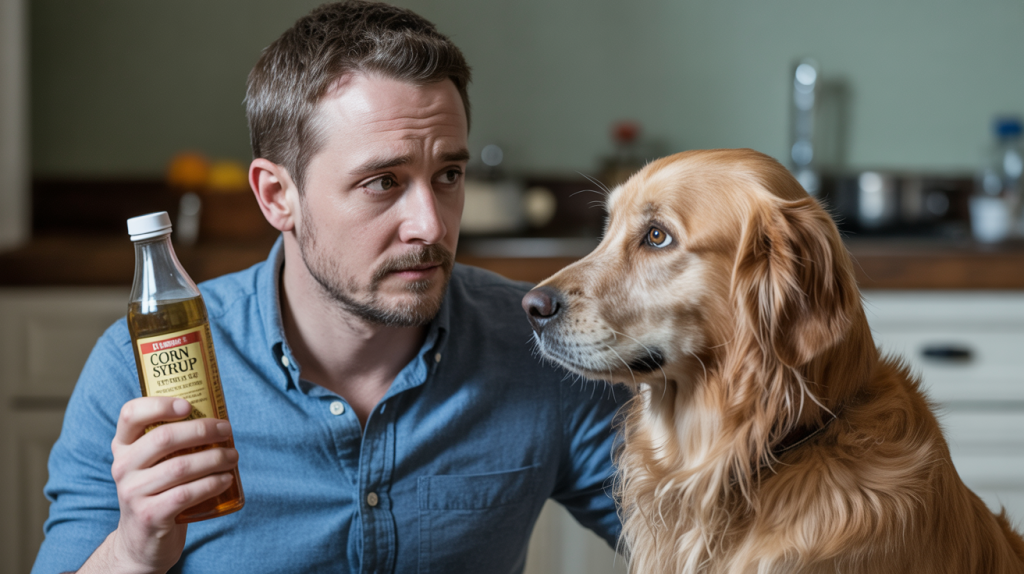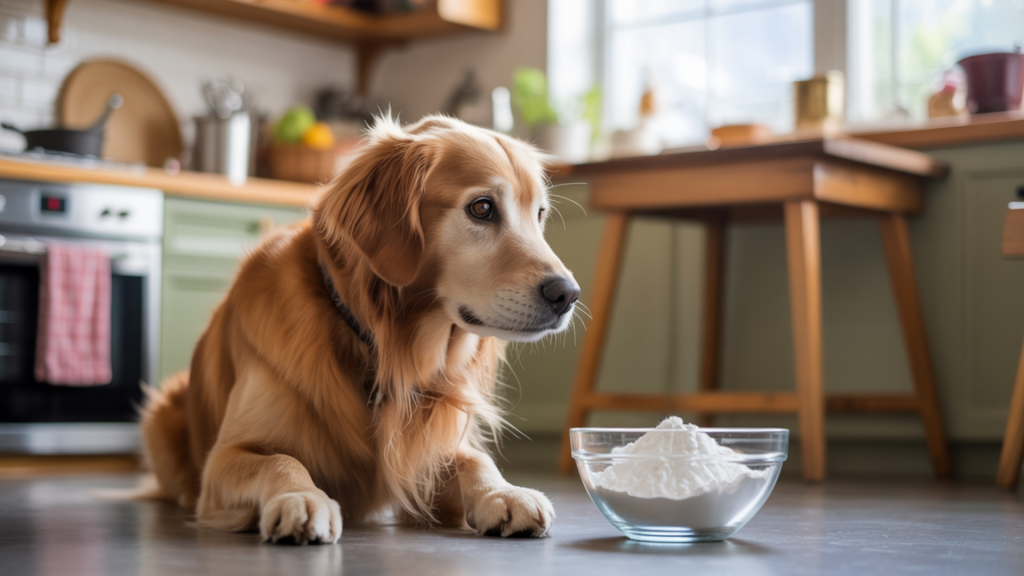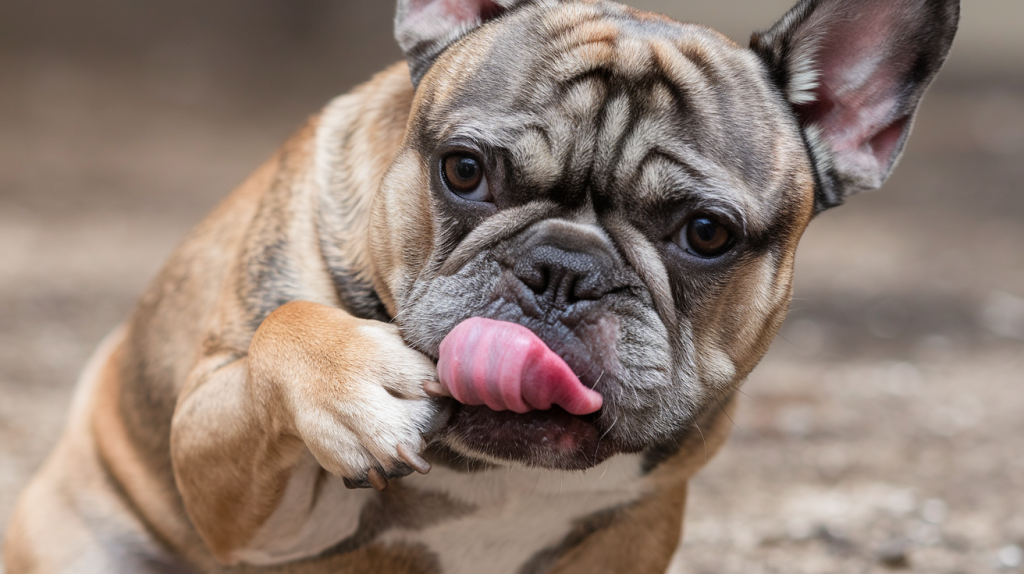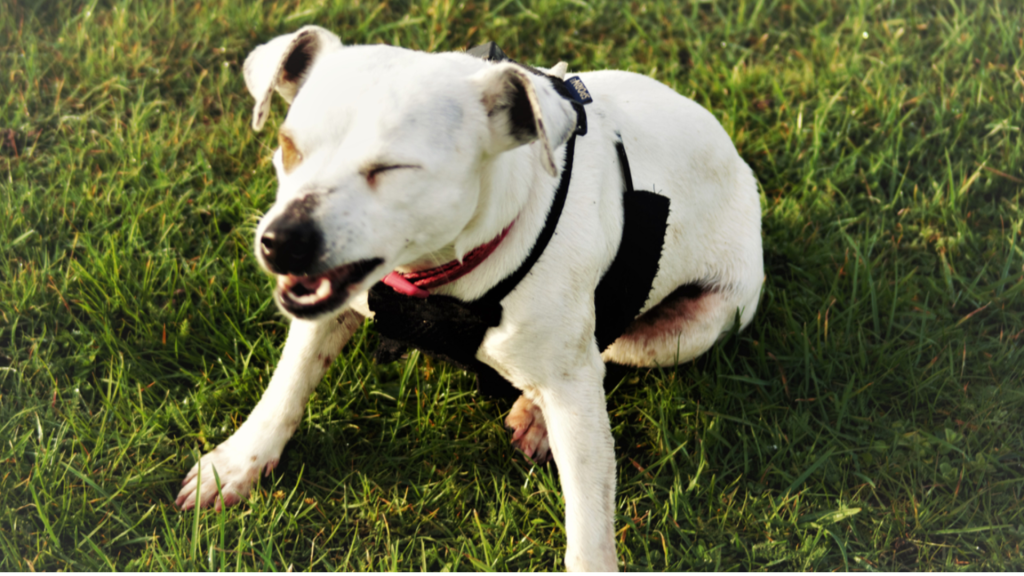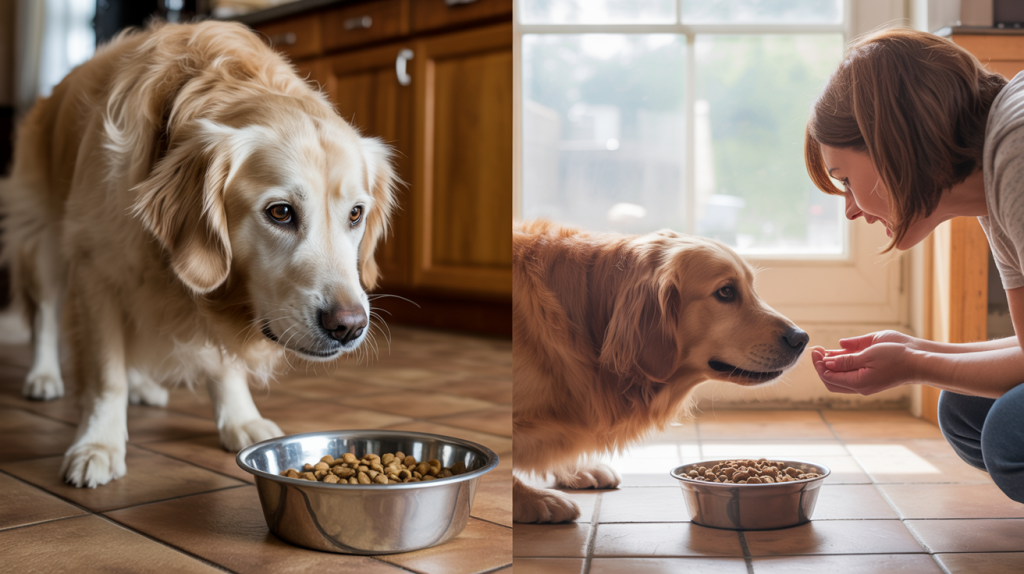Your dog just ate something sweet, and now you’re panicking. Many pet owners face this scary moment when their furry friend gets into human food.
But when it comes to corn syrup, the answer to “can dogs have corn syrup” isn’t as straightforward as you might think. This blog will give you the clear answers you need about whether dogs can have corn syrup safely.
Let’s get the facts straight so you can protect your four-legged family member.
What is Corn Syrup and Why is it Used in Food?
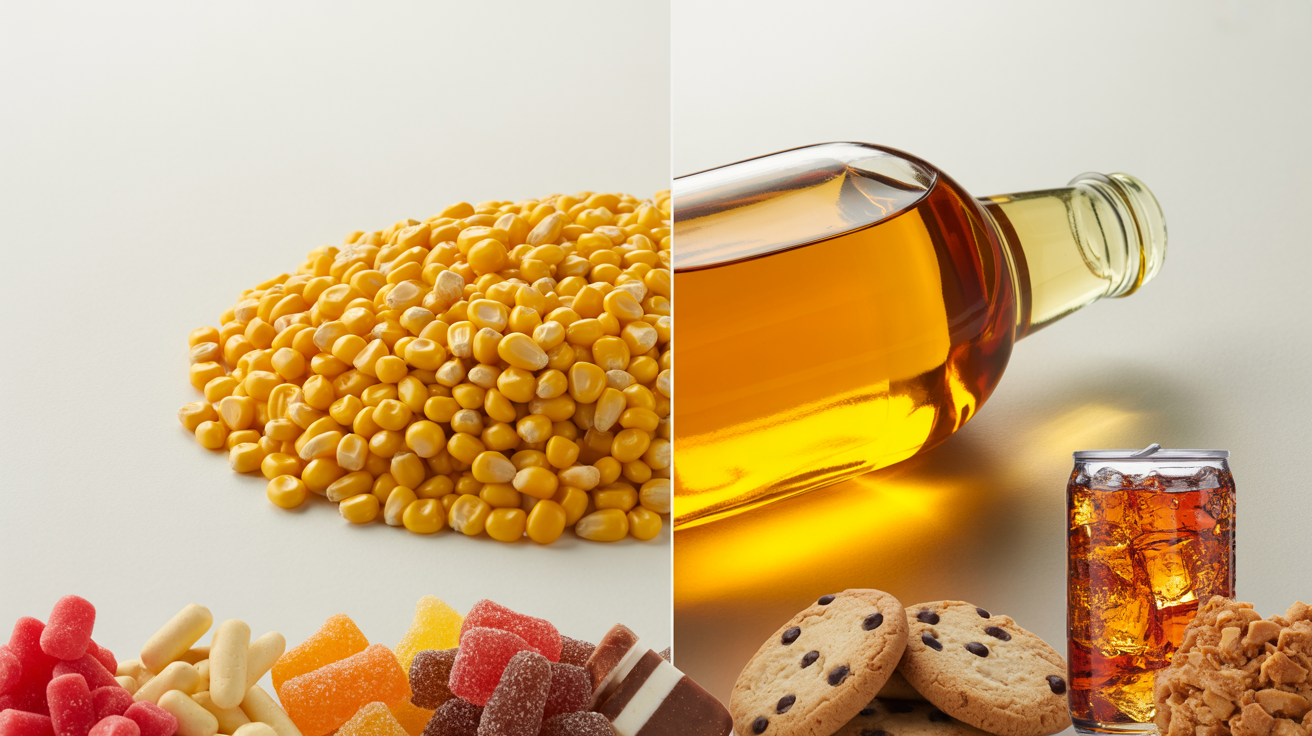
Corn syrup is a sweet liquid made from corn starch. It is sugar’s cousin, but from a different source. Food manufacturers create it by breaking down corn starch using special enzymes and acids.
You’ll find corn syrup in tons of everyday foods. It’s in candy, baked goods, soft drinks, and even some sauces. But why do companies use it so much?
First, it’s cheaper than regular sugar. This helps keep food costs down for both manufacturers and consumers. Second, corn syrup mixes well with other ingredients and doesn’t crystallize like regular sugar can. This makes it perfect for creating smooth candies and keeping baked goods moist.
The syrup also has a long shelf life, which means products stay fresh longer on store shelves. Plus, it gives foods that glossy, appealing look you see on many packaged treats.
While it serves these purposes in human food, the big question remains: should your dog be eating it?
Health Risks of Feeding Corn Syrup to Dogs

Corn syrup presents several serious concerns about your dog’s health. While a tiny amount might not cause immediate harm, regular consumption can lead to significant health problems for your furry friend.
Can Dogs Have Corn Syrup?
The short answer is no. Corn syrup is not safe for dogs.
Even though it won’t kill your pet instantly, this sweet substance can cause both immediate and long-term health issues. Dogs process sugars very differently from humans, and their bodies aren’t built to handle these concentrated sweeteners.
Immediate Health Risks:
- Blood sugar spikes – Corn syrup causes rapid increases in blood glucose levels, which can be dangerous
- Stomach upset – Can lead to vomiting, diarrhea, and general digestive distress within hours
- Hyperactivity followed by crashes – Sugar rushes make dogs overly excited, then extremely tired
- Dehydration – High sugar content pulls water from your dog’s system, leading to increased thirst
- Lethargy – After the initial sugar high, dogs often become unusually tired and sluggish
Long-Term Health Problems:
- Obesity – Empty calories contribute to unhealthy weight gain over time
- Diabetes – Regular sugar intake significantly increases the risk of canine diabetes
- Dental issues – Sweet substances promote tooth decay, gum disease, and bad breath
- Liver stress – Excess sugar processing puts unnecessary strain on your dog’s liver
- Heart problems – Obesity from sugar consumption can lead to cardiovascular issues
- Weakened immune system – High sugar diets can compromise your dog’s natural defenses
The High-Fructose Corn Syrup Problem
High-fructose corn syrup is even worse for dogs than regular corn syrup. This heavily processed version contains higher concentrations of fructose, which dogs struggle to process efficiently.
Their digestive systems lack the proper enzymes to break down fructose effectively.
This makes high-fructose corn syrup particularly dangerous for our canine companions, often causing more severe digestive upset and faster weight gain.
Healthier Alternatives to Corn Syrup for Dogs
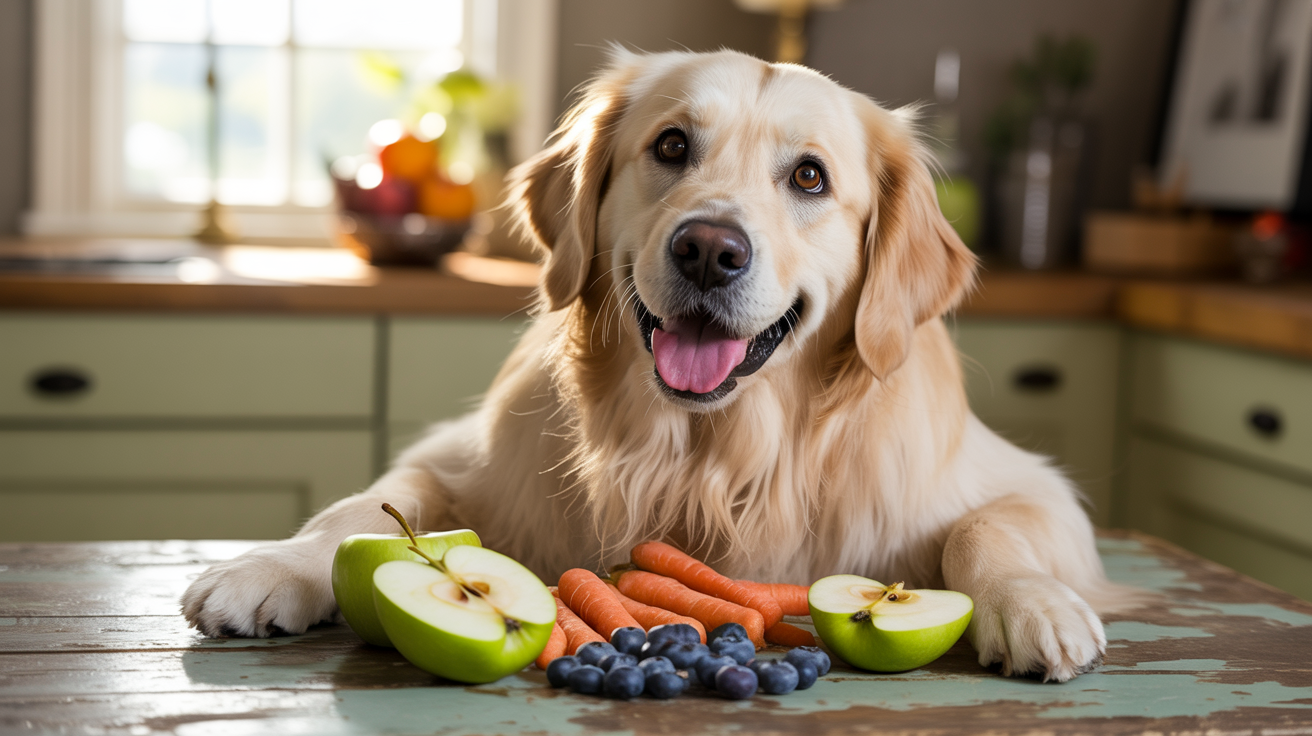
Instead of reaching for sugary corn syrup, you have plenty of better options to treat your dog. These alternatives satisfy your pet’s sweet tooth without the health risks.
Safe Treats and Natural Sweeteners (In Moderation)
Your dog can enjoy these wholesome options that provide natural sweetness plus valuable nutrients:
- Apples – Remove the seeds and core first. Apples offer fiber, vitamins, and a satisfying crunch that most dogs love. Cut them into small pieces to prevent choking.
- Carrots – These orange veggies are naturally sweet and great for your dog’s teeth. Raw carrots help clean plaque while providing beta-carotene and fiber. Baby carrots work perfectly as training treats.
- Sweet Potatoes – Cooked sweet potatoes are packed with vitamins and have a naturally sweet taste. You can bake them, steam them, or even dehydrate thin slices for chewy treats.
Vet-Approved Commercial Treats
Look for treats that carry veterinary endorsements or recommendations. These products undergo safety testing and contain ingredients specifically chosen for dogs. Read labels carefully and choose options with simple, recognizable ingredients.
Avoid treats with added sugars, corn syrup, or artificial sweeteners like xylitol, which is toxic to dogs.
DIY Treat Ideas Without Sugar or Artificial Additives
Making homemade treats gives you complete control over ingredients:
- Frozen fruit cubes – Blend dog-safe fruits with water and freeze in ice cube trays
- Baked sweet potato chips – Slice and bake until crispy
- Peanut butter and banana bites – Mix natural peanut butter with mashed banana, no sugar added
These options keep your dog happy and healthy without the risks of corn syrup.
Tips for a Healthier Canine Diet
Keeping your dog healthy starts with what goes in their food bowl. A few simple changes can make a big difference in your pet’s overall well-being and energy levels.
- Choose high-quality dog food with real meat as the first ingredient, not fillers or by-products.
- Read ingredient labels carefully and avoid foods with corn syrup, artificial colors, or preservatives.
- Stick to regular feeding schedules instead of free-feeding to help maintain proper weight.
- Measure food portions based on your dog’s size, age, and activity level to prevent overeating.
- Provide fresh, clean water daily and change it regularly to keep your dog properly hydrated.
- Limit table scraps to less than 10% of your dog’s daily calories to avoid nutritional imbalance.s
- Introduce new foods gradually over several days to prevent stomach upset
Wrapping It Up
Now you know the answer to “can dogs have corn syrup” – it’s a clear no. This knowledge protects your furry friend from unnecessary health risks like diabetes, obesity, and digestive problems.
So what does this mean for you? It means you can make smarter choices for your pet’s diet. Check your current dog treats for hidden corn syrup and replace them with healthier options like apples or carrots.
Next time someone asks, “Can dogs have corn syrup? ” You’ll have the facts to share.
Start reading those ingredient labels today and talk to your vet about the best diet plan for your dog’s specific needs.


